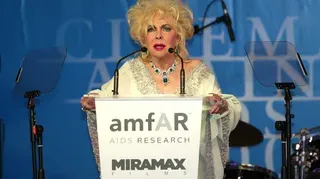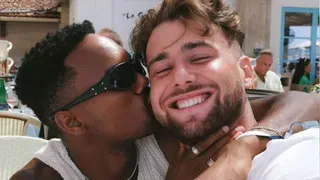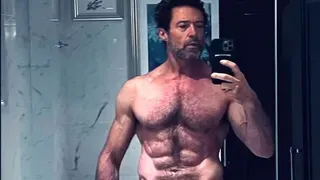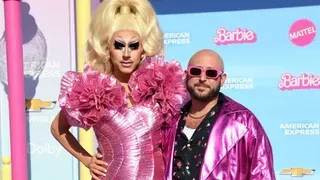November 12, 2024
EDGE Interview: Groundbreaking Queer Filmmaker/Historian Jenni Olson Heads to Harvard for Retrospective
Kilian Melloy READ TIME: 7 MIN.
EDGE: One short that stood out to me was the 1985 Patrick Mimouni film "Bertrand Disparu," which has a queer character who's dressing as a woman. It seems maybe even bolder now than when it was made, because this queer character is taking care of a 12-year-old runaway. No one else is watching out for this kid.
Jenni Olson: I'm so glad you brought that up. It's such an interesting film, and, like so many films in the series, something that basically no one has heard of in 30 – or, in this case, 40 – years. But, you know, when it came out in 1985 it won the award for the best film at the San Francisco LGBT Film Festival. It's a beautiful film shot on 35-millimeter. It's 45 minutes long, so it almost feels like a short feature. And the incredible performances are so moving.
The main character is this flamboyant, gender complicated character. "Drag queen" is how he was described at the time as a character, but that he's saving this straight young teenager [is] a beautiful [and] innocent way of [saying], "Yeah, gay people are awesome people."

EDGE: There are some super-short things in your collection, like a news report about Anita Bryant getting hit in the face with a pie, and a commercial for Jello with Charles Nelson Reilly. Some of this stuff is uproarious, and a real contrast against the more dramatic material.
Jenni Olson: I'm glad you brought up the Anita Bryant thing. What I wanted to do was look at this kind of historic overview, particularly of queer activism. It's interesting in this moment to look back and know that we have always had to fight. It's inspiring to look back at our predecessors, who are so kick-ass and creative and joyful and inspiring; we really need that right now.
There's a short documentary called "Altered Habits" that's about the Sisters of Perpetual Indulgence, another example of incredible, creative queer resistance that's fundamentally political and also joyful and fun.
And then, of course, "Queens at Heart," which is such an incredible portrait of trans women in 1967, two years before Stonewall, being amazing, beautiful, brave, candidly talking about their lives.
The other film that I'm most proud of is called "The Case of Mr. Lin." It's amazing. It's a 1955 filmed therapy session with a gay man, and he's talking about being gay, and how he doesn't want to be gay. The therapist is Carl Rogers, who's considered to be the initiator of regular talk-centered therapy. So, Mr. Lynn is like, "It's really hard to be gay. I don't want to be gay." And Carl Rogers is just mirroring back to him: "I hear that it's really hard for you." He's not, like, "You're sick," right? We're showing the first 20 minutes of it, because the remaining 35 minutes of it, like most therapy sessions, is really boring.
EDGE: You're going to be there in person to present these films and talk about them with the audiences. What are you looking to bring to the fore or to bring in focus?
Jenni Olson: One of the things is this sense of connecting to our past. But also, it's so important and powerful for us to watch movies and [have] that experience of being together and relating to our culture and our history. It's exciting that so many of these things are not available at all, and it's because the Harvard Film Archive is taking care of them and facilitating this that people are going to get an opportunity to see them – and to see them on film.
The Harvard Film Archive presents "From the Jenni Olson Queer Film Collection" from Nov. 10 – 24. For more information, follow this link.
Kilian Melloy serves as EDGE Media Network's Associate Arts Editor and Staff Contributor. His professional memberships include the National Lesbian & Gay Journalists Association, the Boston Online Film Critics Association, The Gay and Lesbian Entertainment Critics Association, and the Boston Theater Critics Association's Elliot Norton Awards Committee.







